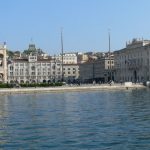
AUCKLAND, New Zealand — For a year and a half, New Zealand has pursued a strategy of “Covid zero,” closing its borders and quickly enforcing lockdowns to keep the coronavirus in check, a policy it maintained even as other Asia-Pacific countries transitioned to coexisting with the viral threat.
On Monday, New Zealand gave in.
Prime Minister Jacinda Ardern acknowledged an end to the elimination strategy seven weeks into a lockdown that has failed to halt an outbreak of the Delta variant, announcing that restrictions would be gradually lifted in Auckland, the country’s largest city.
“We’re transitioning from our current strategy into a new way of doing things,” Ms. Ardern told reporters. “With Delta, the return to zero is incredibly difficult, and our restrictions alone are not enough to achieve that quickly. In fact, for this outbreak, it’s clear that long periods of heavy restrictions has not got us to zero cases.”
“What we have called a long tail,” she added, “feels more like a tentacle that has been incredibly hard to shake.”
Overall, New Zealand’s approach to the virus has been a spectacular success, giving it one of the lowest rates of cases and deaths in the world, and allowing its people to live without restrictions during most of the pandemic.
But the mood among many in Auckland has soured as the most recent lockdown has stretched on, with thousands of people breaking a stay-at-home order on Saturday to demonstrate against the restrictions in the country’s largest such protest of the pandemic.
The country’s vaccination program has also been a source of consternation. The campaign began in earnest only last month,
Continue reading – Article source
Posts from the same category:
- None Found










